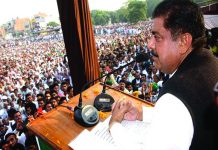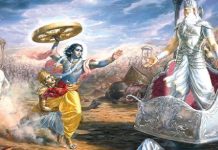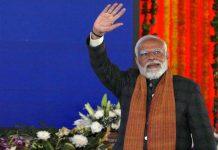
Photo: Ankit Agrawal
Edited Excerpts from an Interview
What do you make of the resurgence of Manto’s popularity over the last year?
I don’t know whether ‘resurgence’ is the word for those of us who have seen a steady interest in Manto. Of course, the last year was important because it was the centenary and that may have brought in a new set of youngsters previously unexposed to him, but I do think he has caught the imagination of the youth over the years. What’s beautiful about Manto is that he hasn’t received state sponsorship in either India or Pakistan, but youngsters have independently found in him the attraction of him as a rebel writer, a contrarian. The more we are surrounded by hypocrisy, the more Manto becomes relevant. The hypocrisy of society really used to get to him.

Ayesha Jalal
HarperCollins
265 pp; Rs 599
The great thing about Manto was that he could tell you so many stories about Partition from so many perspectives, but what did he personally think of what was happening around him?
He expressed bewilderment at the Partition. He looked in the newspapers, and all he could see was that the Muslim League was a mosque and the Congress was a temple. He really didn’t buy either; he was just trying to understand what the hell was going on. After the violence broke out he was despondent and he addressed his despair by writing these stories about the horror, making people realise it could happen to them. He was not trying to cast a moral judgment, but wanted to show how individuals are affected by the chaotic times. He wasn’t naïve; he brings out the bestiality of human beings, but says there is still some goodness, something that can be redeemed, even if you’re Ishwar Singh of ‘Thanda Gosht’. Manto claimed that he never wrote a story on the basis of a purely imaginary character; he was journalistic in that sense. He drew people out to find their stories.
Was the shunning of Manto part of the act of our two countries shelving away the memory of the violence of our creation?
There is much more to Manto than Partition stories, but it is also extraordinary that Pakistan doesn’t want to face up to the reality of that bloodshed. Many Pakistanis will take issue even with the name of my book, The Pity of Partition, because it makes it sound like Partition was a bad idea. The ‘pity’ is that despite independence they are still slaves of bigotry. Even though we are free, the question is who will we subjugate now. That is the story Manto tells and that was awkward for many people.
ajachi@tehelka.com













